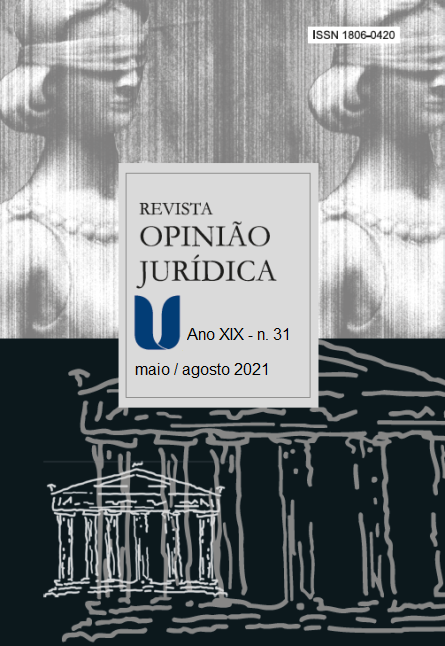LEGAL EDUCATION IN THE 21ST CENTURY AND THE ARTIFICIAL INTELLIGENCE
DOI :
https://doi.org/10.12662/2447-6641oj.v19i31.p1-32.2021Mots-clés :
Legal education, Digitization, Artificial intelligenceRésumé
Objectives: We sought to study the main reflexes of the digital economy that influence legal education, and some of the operational suggestions that accompany criticisms of that process. To this end, some of the main suggestions made by experts in law and education to transform legal education in the face of the technological ubiquity scenario were observed. In a second moment, the transformations that higher education has been undergoing with the introduction of AI in the market and in universities were specifically analyzed. Finally, both the reflexes of AI in legal education and suggestions related to transformations that legal education must undergo were studied.
Methodology: The hypothetical-deductive procedure method was used, with a qualitative and technical approach of bibliographic-documentary research, in this exploratory and interdisciplinary research.
Results: It was identified that legal education will have to move away from a retrospective epistemological stance, and evolve towards a prospective and projective stance, incorporating knowledge from technological areas and quantitative methodologies, without neglecting the exercise of traditional normative skills, communicative and narrative values that are highly evaluated by law professionals, thus emphasizing the need to foster student creativity. It is also concluded that higher education courses should incorporate coding in their curricula, in parallel with encouraging students' creativity and their communicative skills — however, a regulation should be developed in parallel, which must take into account the ethical risks of the use of AI in teaching. Finally, it is clear that the legal professions are not yet under a very pressing possibility of substitution by AI, but universities must make students aware that there are specific tasks in the legal professions that may be replaced by AI tools in order to advise them to focus on tasks that cannot be replaced by machines.
Téléchargements
Publiée
Comment citer
Numéro
Rubrique
Licence
La soumission d'articles à l'analyse de l'équipe éditoriale de Revista Opinião Jurídica implique, par cet acte même, la cession, de la part de(s) auteur(s), à Centro Universitário Christus - UNICHRISTUS, de l'oeuvre afin de reproduction, divulgation, distribution, impression, publication et de la rendre disponible, selon les normes de publication (Norma de Publicação 414 R. Opin. Jur., Fortaleza, ano 12, n. 16, p. 1 - 414, jan./dez. 2014) à la charge de UNICHRISTUS, sous toute forme ou moyen existant ou futur, selon l'article 49 et suivants de la Loi 9.610/98.
Paragraphe premier. La cession objet de ce terme est faite à titre non exclusif et gratuit, incluant la totalité de l'oeuvre.
Paragraphe 2: UNICHRISTUS peut rendre disponible, pour des finalité didactiques, l'oeuvre complet ou en parties, des changes à son contenu étant interdites, à l'exception de corrections ou formatages nécéssaires.
Paragraphe 3: La cession est valable dans tous les pays, en langue portugaise ou version traduite, selon l'intérêt de UNICHRISTUS.
LES RESPONSABILITÉS
Au moment au l'article est soumis à la revue, le(les) auteur(s) prend(prennent) la responsabilité exclusive concernant l'intégralité du contenu de l'oeuvre. Toute mesure judiciaire ou extra-judiciaire sera, donc, la responsabilité de l'auteur.
Paragraphe unique. Au cas où plusieurs personnes sont les auteurs de l'oeuvre, leur responsabilité sera solidaire, sauf preuve contraire.






























